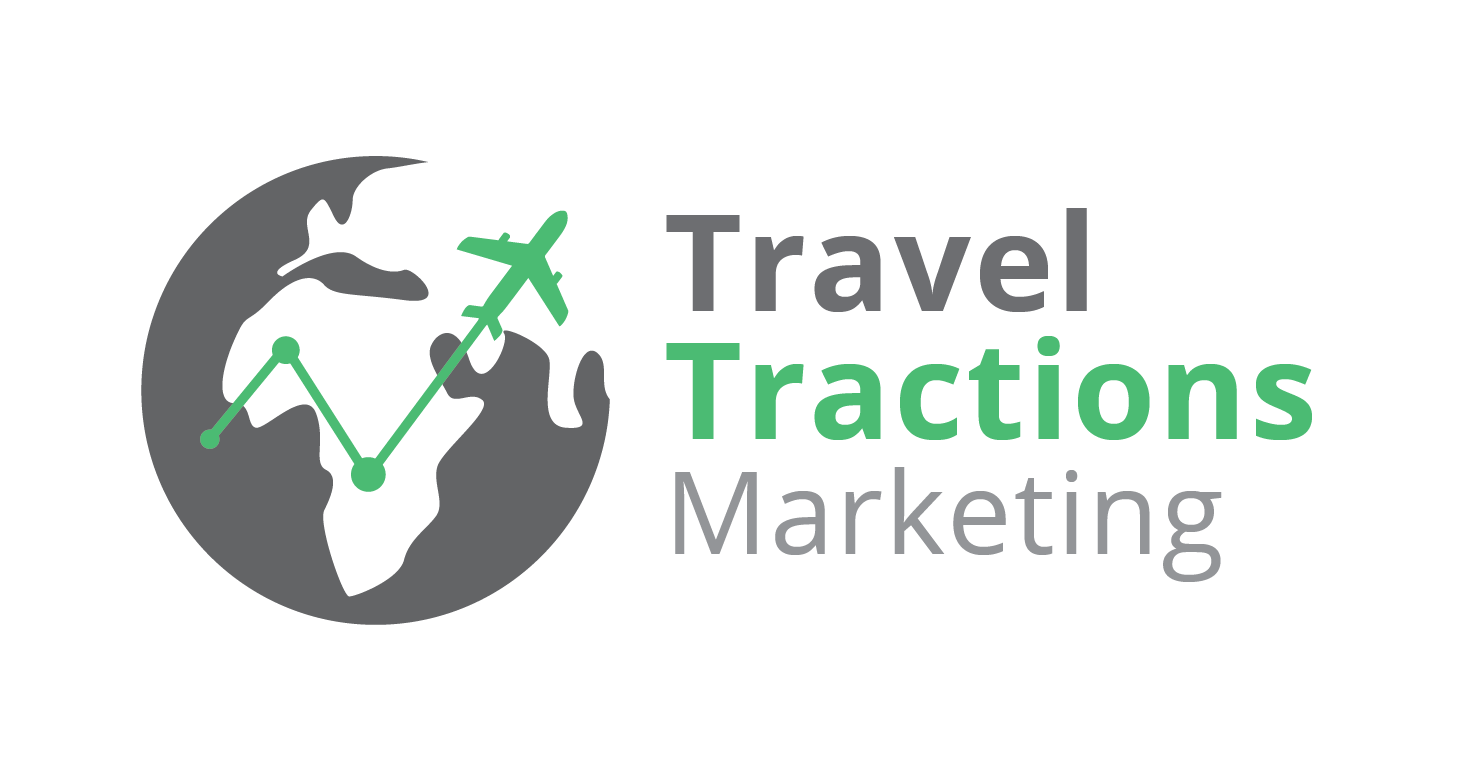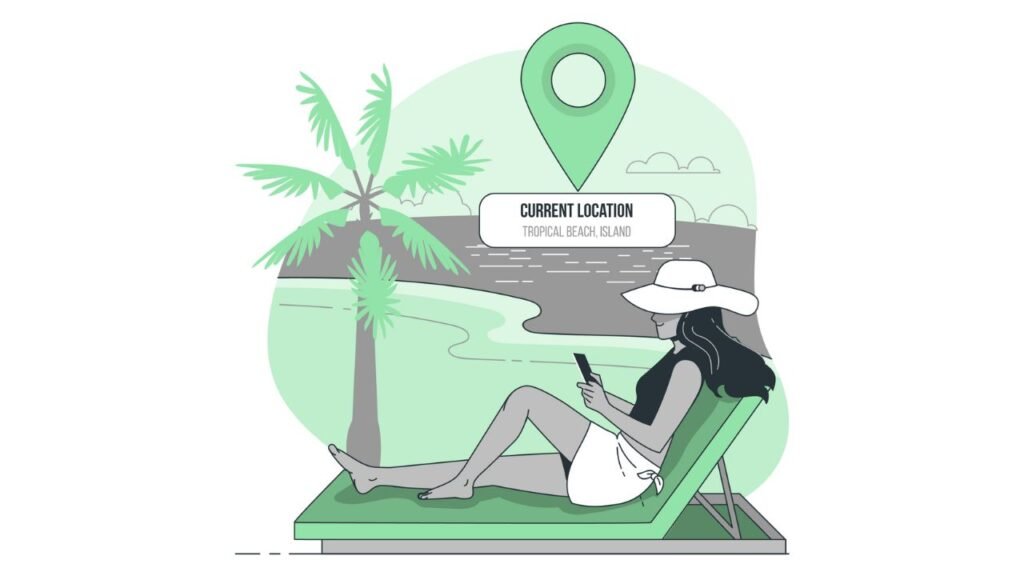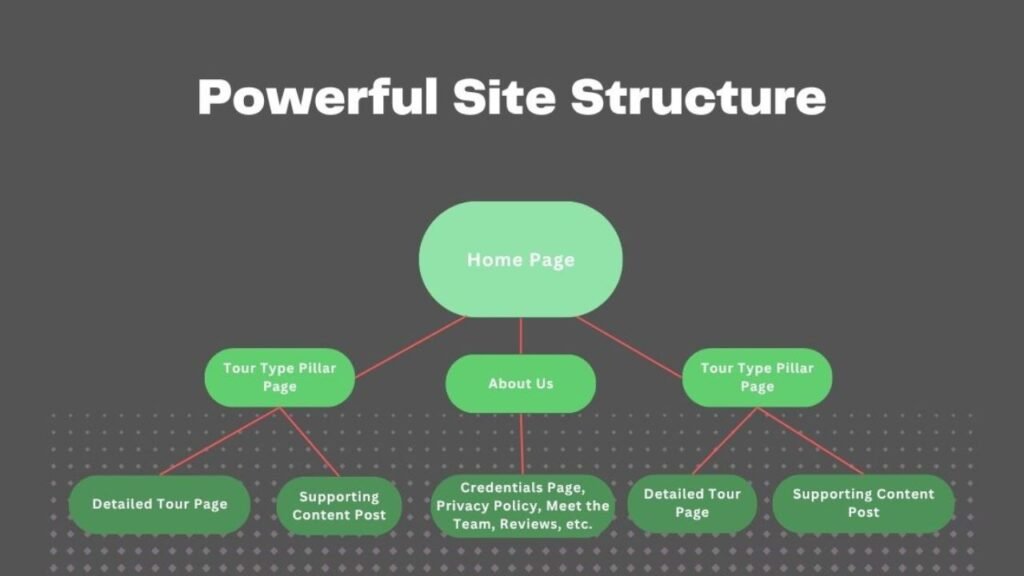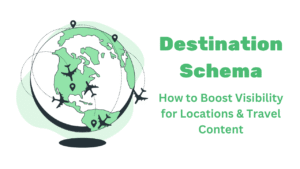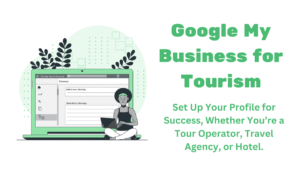
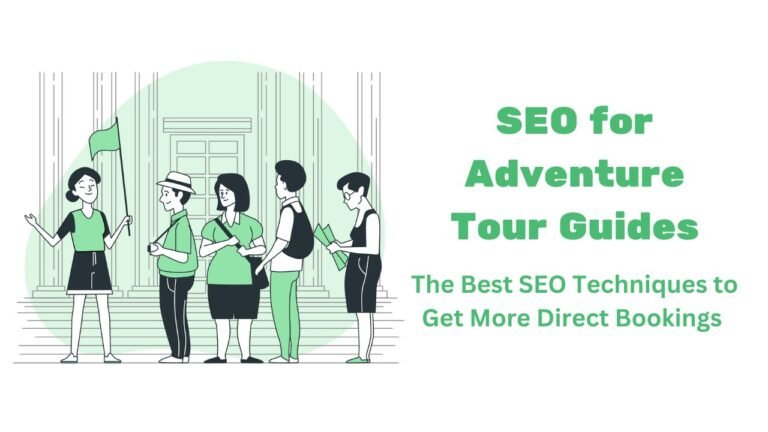
SEO for Adventure Tour Guides: 10 Ways to Get More Bookings
Is your adventure tour company struggling to attract customers? You’re not alone. While the global adventure tourism market is expected to be worth $1.94 trillion by 2032 (according to Allied Market Research), standing out in this competitive industry isn’t easy.
This is where search engine optimization (SEO) comes to the fore. This ingenious marketing practice is the compass that guides potential adventurers directly to your website, cutting through the competition. So, do you want to learn how your brand can reignite its performance, increase direct bookings, and reduce OTA reliance? Then this in-depth guide is for you.
What Is SEO for Adventure Tour Operators?
In short, SEO for tour operators is optimizing your tourism website to increase visibility. While SEO is traditionally used to improve your visibility on the search engine results pages, we understand that how people search is constantly evolving.
As such, the SEO techniques included in this guide are holistic, ensuring you make the most of search engine rankings, social media platforms, and AI search models. This way, you won’t be relying solely on search results to drive traffic and bookings to your website.
Why Is Local SEO So Important for Adventure Tour Guides?
Local SEO is essential for any business offering physical services, as it helps increase your visibility and ranking in local search results. This means every time a traveller is actively searching for a local experience, you’ll be one of the first to show up.
Not only does this mean you’ll attract more organic traffic, but you’ll be hitting the target audience who are actively looking to book an experience. Simply put, an adventure tourism business without a powerful local SEO strategy is handing money straight to its competitors without even knowing it.
10 Best SEO Practices to Boost Your Adventure Tour Company
Now for the fun stuff. Here are our top 10 tried and tested travel SEO strategies that continue to provide growth.
1. Optimize Your Google Business Profile
First and foremost, it’s essential to optimize your Google Business Profile (GBP) by including as much beneficial information as possible. If you still don’t believe that a Google Business Profile is important, here are some compelling stats provided by Search Endurance:
- 75% of the top-ranking pages have complete GBP’s.
- Customers are 2.7 times more likely to trust your business if you have a GBP.
- Verified Google Business Profiles average around 200 monthly clicks.
- 48% of Google Business Profile actions are website visits.
If you didn’t think a GBP was essential before, you may think otherwise now. It’s crucial in establishing yourself as a major reference for local searches, and it clearly brings in plenty more traffic that you’d otherwise never see.
While you should ideally have a complete Google Business Profile, some non-negotiables that should always feature include:
- High-quality photos showing off your activities
- Business description
- Business name
- Office address
- Leveraging attributes where you add even more details about your business
- Website and contact details
- Services offered
Top Tip: For a more in-depth guide, check out our post on how to set up a Google Business Profile.
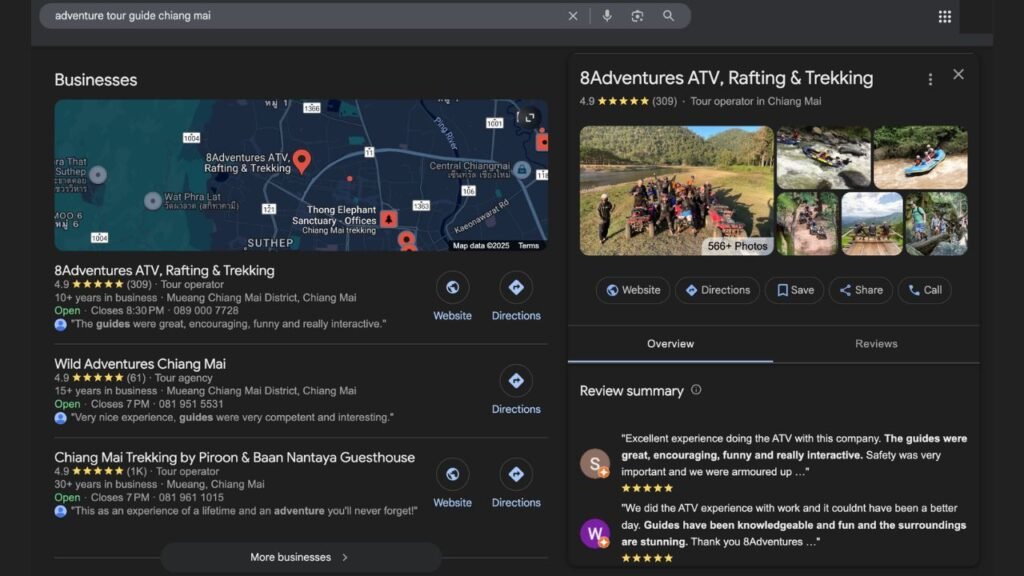
2. Encourage Reviews and User-Generated Content
With a complete and verified Google Business Profile, you can now focus on one of the most critical factors of the digital market, securing social proof.
It’s not always easy to get reviews from your guests, but it’s not impossible. Some easy ways you can secure these reviews include:
- Using travel review sites, which usually provide automated messaging systems.
- Sending out automated emails asking for feedback. You can easily create one of these with a mailing software such as Mailchimp or Klaviyo.
- Asking guests to leave a review near the end of their tour in person.
Now, user-generated content can be slightly trickier to secure. If you’re using automated messaging tools, try to include links to your social media platforms and ask your guests to tag you when uploading a post about their experience. Alternatively, you can also encourage them to include photos of their experiences in their review.
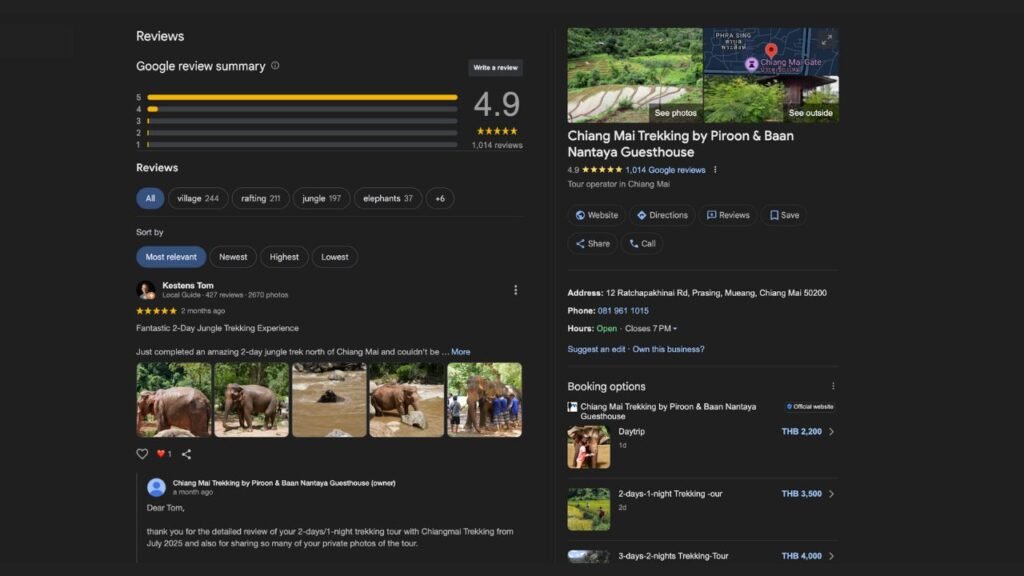
3. Have a Good Site Structure
Having a well-crafted site structure is yet another essential element of your website to focus on. Ideally, your site structure will resemble the image below, clearly defining your website’s goals and purpose.
It’s crucial that the site structure follows a clear and logical hierarchy, grouping your content based on tour type, its importance, and so on. This will help create a web-like structure for your website, where your homepage is at the centre and all content builds from there.
4. Use Structured Data Effectively (Schema)
With a powerful site structure in place, it’s now time to focus on a slightly more technical aspect of SEO: schema markup for your tour company. Simply put, schema markup is code, or structured data, added to your webpage to help search engines better understand your website.
Why is this important? It increases your chances of earning rich results, allowing your search results to feature key determining factors like review stats, pricing, images, etc. This means increased search visibility, enhanced user experience, and better indexing of your website.
While every adventure tour guide is different, here are some key schema markups you should look to include:
- LocalBusiness Schema
- TouristAttraction Schema
- Offer Schema
- Review Schema
- Breadcrumb Schema
Once implemented, you can then validate your schema here to see if it has been done correctly.

5. Perform Keyword Research and Create a Content Plan
Effective SEO for adventure tour guides also relies on keyword research and a clear content plan. Here are a few ways to find relevant travel keywords for your tour business:
- Google Search Console — A free and powerful tool for finding topic gaps on your website.
- Google Keyword Planner — Perfect for those using Google Ads, it helps identify keywords for ad campaigns and content.
- Paid Tools — Powerful SEO tools like Ahrefs, Semrush, and Moz can help discover new content opportunities.
When choosing keywords, focus on search volume, difficulty, and search intent. Once you have your keywords clearly identified, it’s time to set up a clear content strategy. Consistently posting high-quality content shows you’re a reputable expert and helps your business rank higher in search results.
Just remember to only target relevant keywords to your business, as irrelevant content can hurt your legitimacy.
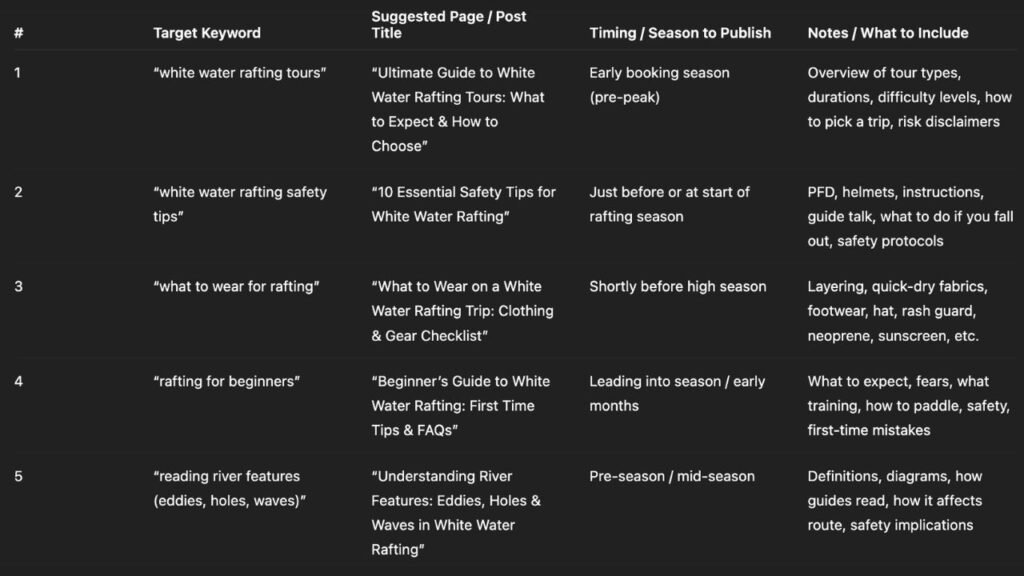
6. Use Visual Content and Recycle It Across Platforms
Visual content is the cornerstone of your tour business, as these high-quality images provide the evidence potential guests rely on when booking a tour. According to Speach, 90% of the information transmitted to the brain is visual, highlighting how essential the visual representation of your activities is.
To maximise your visual content, use it across all your platforms, from your website to your social profiles, for consistent brand representation.
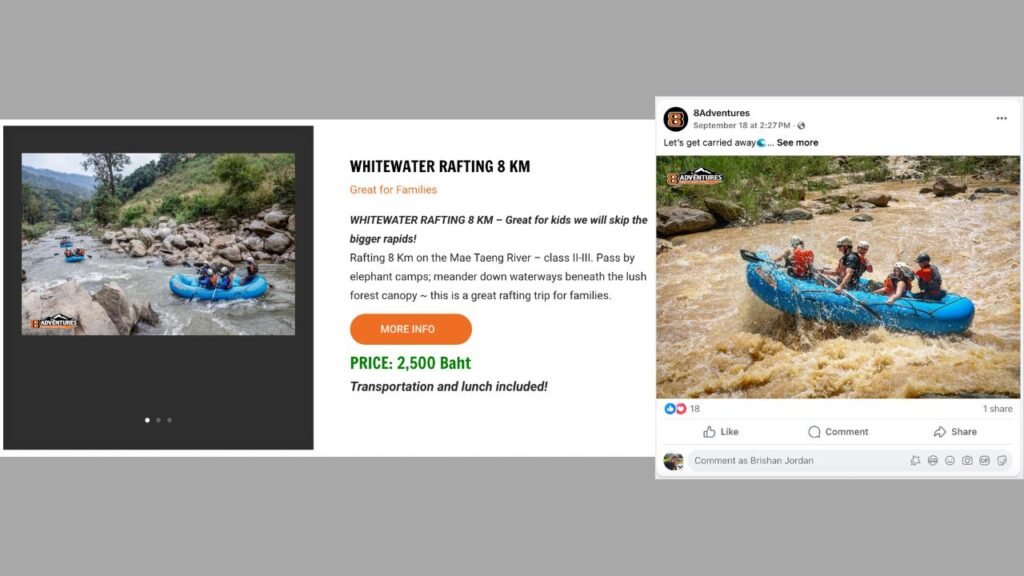
7. Establish a Powerful Link Building Strategy
The importance of link building in SEO is still extremely significant for several reasons. Firstly, these link builds can be considered public votes promoting your website. Secondly, AI-based search results still heavily rely on public input when compiling information for their responses to a query.
Here’s a scenario. You are a tour company that offers ethical elephant sanctuary encounters in Chiang Mai. Someone searches “what are the best elephant sanctuary tour guides in Chiang Mai?”. If you are regularly referred to as one of the top options on many high-quality domains, then chances are you’ll be referenced in Google’s AI Overviews, ChatGPT, and other AI search tools.
Top Tip: While links are still important, entity recognition is just as important. This means not all mentions of your brand on other websites and local directories need to include a link. Search engines are getting better at understanding the semantic value of your brand name.

8. Ensure Your Website is Optimized for Mobile
Google is now taking on a mobile-first approach to indexing. This means if your website isn’t optimized for mobile search, then it’s highly likely you’ll struggle to rank.
When you consider that 71% of all Google searches in 2025 are being done on mobile devices, your website should be optimized for mobile. If it is, your chances of ranking in organic search and earning traffic to your website from there are far higher.
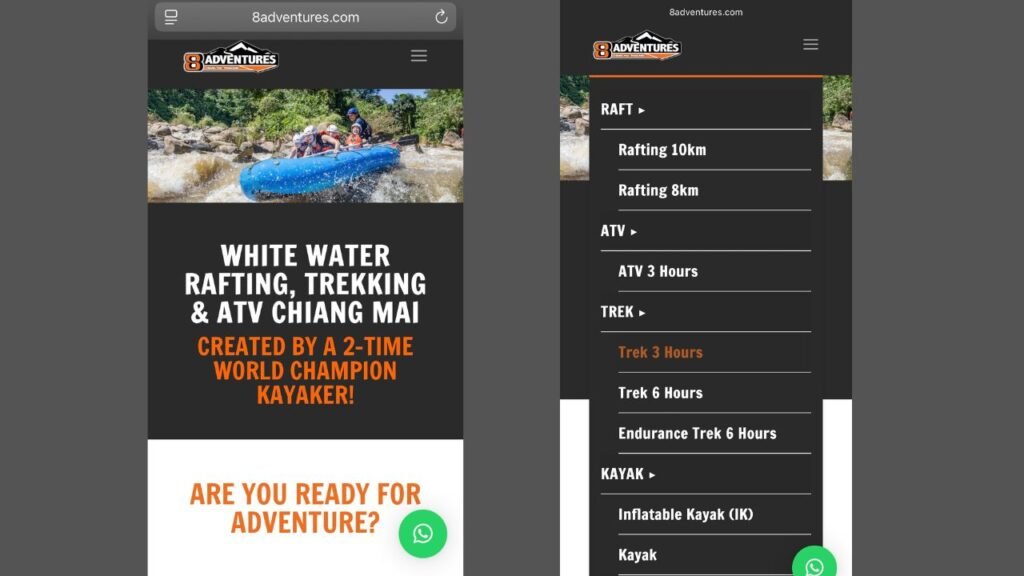
9. Create Supporting Content
This is where your content plan comes into play. If you want to create content marketing to attract organic traffic consistently, there are a few things to keep in mind.
- Focus on one target keyword, and use secondary phrases to support this keyword.
- Write a compelling meta description.
- Use internal links to improve the crawlability and UX of your site.
- Link to high-authority sites to support statements.
- Write high-quality, authoritative content that offers something unique.
If you adapt your content to follow the above SEO tips, you’ll see your content performing well in the search rankings for years to come.
Top Tip: If you want even more details, read our guide to SEO writing.
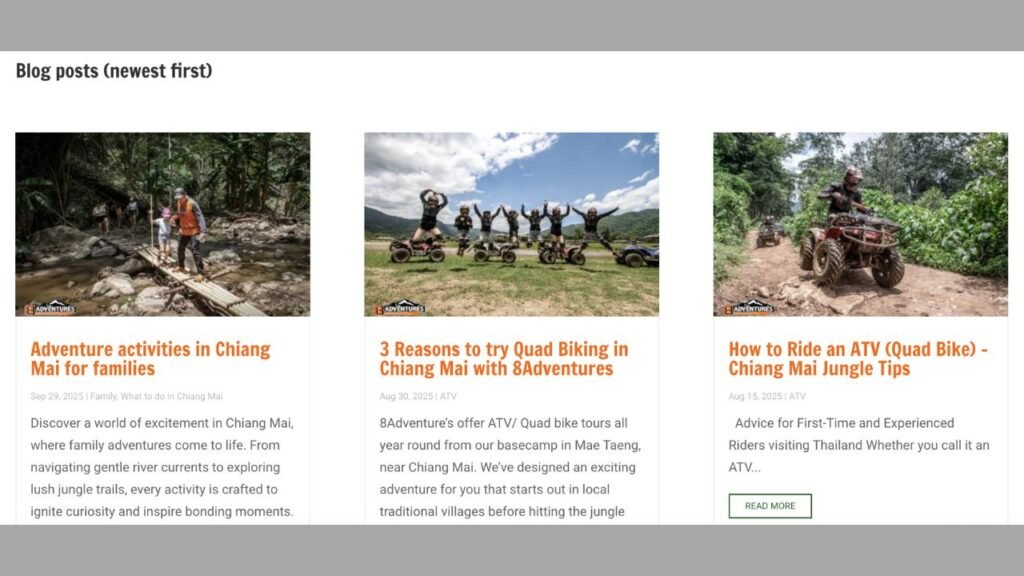
10. Track and Analyse Your Performance to Find New Opportunities
There is no point in doing SEO for tour operators if you don’t track and analyse the performance of your efforts consistently. From monitoring how new website content is performing to tracking technical SEO improvements, search engine optimization requires consistent effort.
By analysing your website’s performance, you can see what needs to be improved and why there may be dips in performance. In-depth tracking also allows you to identify potential fixes to ensure your SEO efforts aren’t for nought.

Bonus Tip: Consider Influencer Collaborations
A slightly underutilised tool by adventure tour guides is influencer partnerships. Collaborating with influencers and bloggers provides the opportunity for your business to reach potential customers you otherwise never would have reached.
These partnerships can be especially effective with micro-influencers (typically around 10K to 100K followers). If they are adventure influencers that align with your business, then their followers are more likely to be interested in what you have to offer.
Simply put, it’s another avenue of online visibility that can help your tour company increase its bookings using legitimate customer testimonials from influencers.
Top Tip: To find influencers currently travelling to your location, go and search hashtags such as “#chiangmaitrip” or use Geotags on social media.

Wrapping Up the Best Practices for Adventure Travel Guide SEO
Using these effective SEO strategies can help your adventure tour company increase direct bookings and reduce reliance on OTAs. These are extremely powerful techniques that local businesses can adopt, guaranteed to yield positive results.

